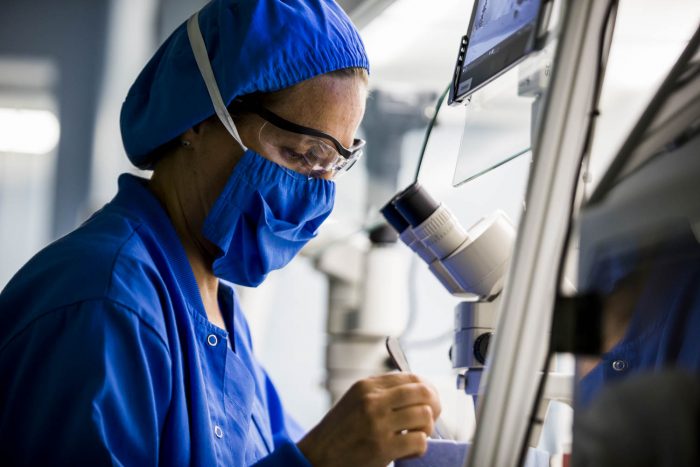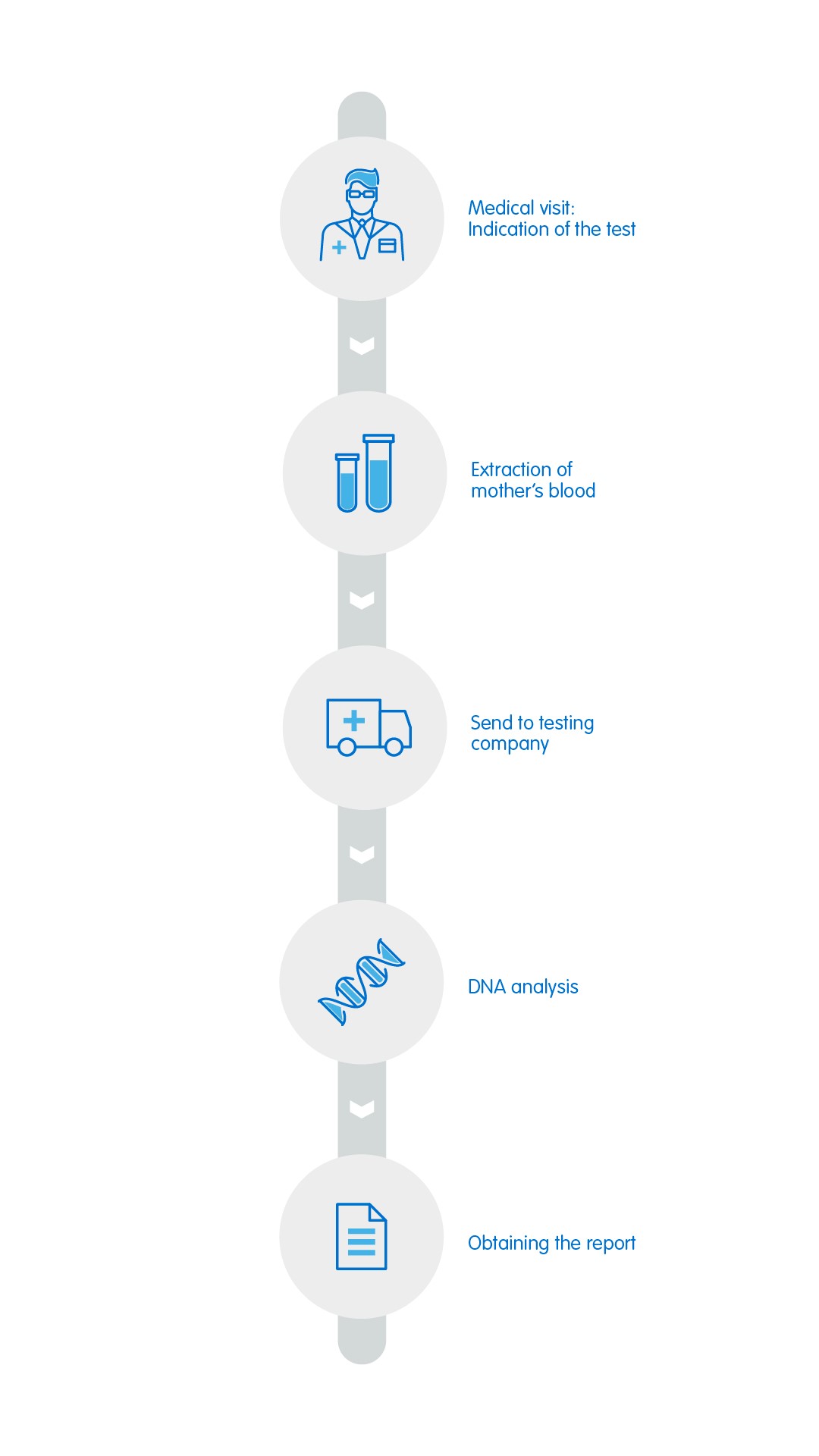

Cell-free foetal DNA blood tests are the most complete non-invasive prenatal tests that exist. They detect the presence of anomalies of chromosomes 21, 18 and 13 (Down, Edwards and Patau syndromes) and the most common anomalies generated by the sex chromosomes (X and Y).


Chromosomes are structures inside the cell that contain genetic information (DNA). In each cell we have 23 pairs of chromosomes, making a total of 46 (two copies of each pair). The first 22 pairs are numbered from 1 to 22, and the last pair determines the sex (women have two X chromosomes and men have an X chromosome and a Y chromosome). When there is any alteration in the number of chromosomes, in their structure or in the information they contain, we refer to genetic alteration. That is why we use genetic analysis to detect them.
During pregnancy, a small amount of the baby’s DNA circulates through the mother’s bloodstream. Advances in the field of genetics make it possible for us to detect this foetal DNA in the mother’s blood and to access genetic information regarding the baby’s chromosomes.
Thus, non-invasive prenatal tests are tests performed before the baby is born to detect abnormalities and do not involve any intervention on the foetus. Information about the baby is obtained through free foetal DNA in the mother’s blood.
They are the most complete non-invasive prenatal tests that exist today: with a simple test of the mother’s blood, they can detect in the future baby the presence of anomalies of chromosomes 21, 18 and 13 (Down, Edwards and Patau syndrome) and the most common anomalies generated by sex chromosomes (X and Y).
There are also more advanced versions of the free DNA in blood test that incorporate the detection of abnormalities of other chromosomes, mainly related to miscarriages in the first trimester, and that can identify losses of a fragment of certain chromosomes – disorders known as microdeletions – related to important genetic syndromes. These extended versions are requested when medically indicated in those cases in which certain abnormalities are detected by ultrasound.
In which cases are they indicated?
RESULTS
90% of patients who undergo an assisted reproduction treatment at IVI become pregnant.
CARE
97% of our patients recommend IVI.
IVI provides personalised care and support during all stages of treatment.
TECHNOLOGY
IVI is a pioneer in the latest assisted reproduction technology in order to present the best results.
PRICE-QUALITY
We are not the most expensive choice. We offer the most treatment options in order to achieve the best results.

Non-invasive prenatal tests use the latest sequencing technology to analyse foetal DNA with high precision and reliability. That is why we have a false-positive rate of 0.2%. In addition, they have a high rate of informativity, since results are obtained in 99.9% of the samples analysed.



From the 10th week of pregnancy, a blood sample is collected from the expectant mother, which we send to the laboratory. For the study of chromosomes 21, 18, 13 and sex chromosomes, the results are ready in just three working days and our specialists can explain the results to you. In the case of the non-invasive prenatal test to detect alterations in all chromosomes and microdeletions, the results are available in 10 days.